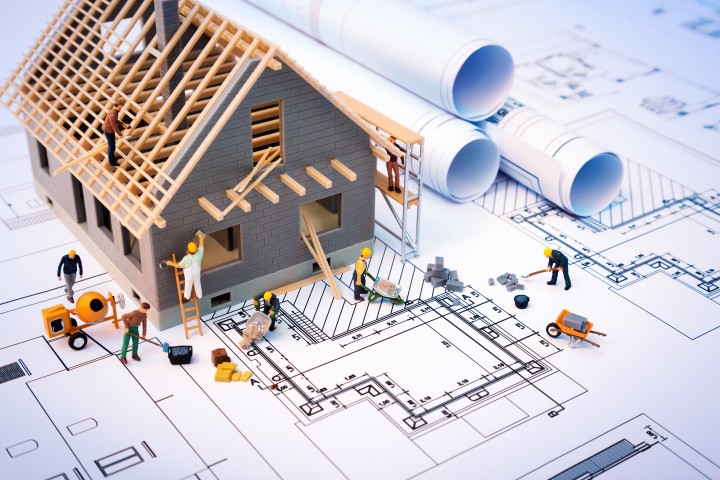Commercial property development is an intricate and multifaceted process that demands the expertise of numerous professionals to ensure success.
Among these, building services consultants play a critical yet often underappreciated role. These specialists are responsible for designing, integrating, and optimising a building’s essential internal systems, ensuring comfort, safety, and functionality.
From HVAC and plumbing to fire safety and energy efficiency, they bridge the gap between concept and functionality in modern construction projects. This blog explores why building services consultants are essential to commercial property development and the benefits they bring to every stage of the process.
Understanding the Role of Building Services Consultants

Building services consultants specialise in the planning and implementation of a building’s technical systems, including heating, ventilation, air conditioning (HVAC), electrical wiring, plumbing, fire safety, lighting, and more. In commercial property development, their involvement is essential from the earliest stages, where they collaborate closely with architects, structural engineers, and project managers to create comprehensive, efficient building designs.
These consultants take into account numerous factors, such as the property’s intended use, expected occupancy, energy requirements, and regulatory standards, ensuring that every system is tailored to the project’s specific needs. By balancing functionality with efficiency and sustainability, they create the infrastructure that allows a building to operate smoothly over the long term.
Meeting Energy Efficiency and Sustainability Goals
With environmental awareness and government regulations on the rise, energy efficiency and sustainability have become central to modern property development. Building services consultants play a crucial role in achieving these goals. They design and implement energy-saving systems that reduce a building’s carbon footprint, from installing efficient HVAC units to integrating renewable energy sources, such as solar panels or geothermal heating.
In commercial properties, heating and cooling systems account for a substantial portion of energy consumption. By designing systems with advanced technologies, such as heat recovery and zoned heating, building services consultants can significantly lower energy usage and operational costs. Not only does this enhance the building’s green credentials, but it also ensures that the property remains competitive and cost-effective for tenants in an increasingly eco-conscious market.
Ensuring Regulatory Compliance and Safety

Building regulations are complex and continuously evolving, especially in the realms of energy use, fire safety, and environmental impact. One of the essential roles of building services consultants is to ensure that all building systems comply with these regulations, minimising the risk of costly fines, retrofits, or legal disputes later on.
For example, fire safety is an area where these consultants have extensive expertise. In a commercial setting, fire detection, suppression, and evacuation systems are essential to protect both occupants and property. Building services consultants design comprehensive fire safety solutions tailored to the layout and function of the property, incorporating alarms, sprinklers, and escape routes that meet all safety requirements.
In addition to fire safety, they ensure that electrical systems, plumbing, and ventilation meet legal standards, safeguarding both the well-being of occupants and the longevity of the building. By aligning designs with current legislation, consultants mitigate risks and contribute to a safer, more secure environment.
Enhancing Comfort and Productivity
A successful commercial property is one that provides a comfortable and productive environment for occupants, whether they are employees, clients, or visitors. Building services consultants play a crucial role in creating spaces that promote comfort and well-being, which can enhance productivity in the workplace.
For example, lighting design is a significant factor in commercial properties. Properly planned lighting, which maximises natural light while avoiding glare, can positively impact mood and productivity. Similarly, well-designed HVAC systems ensure consistent temperature control and air quality, which are crucial for occupant comfort and health. These factors are particularly important in commercial environments, where occupant satisfaction directly affects the business’s success.
By focusing on comfort and functionality, building services consultants help property developers create spaces that meet the diverse needs of occupants, adding value to the property and making it more attractive to potential tenants.
Reducing Long-Term Operational Costs

One of the most notable advantages of hiring building services consultants is the potential for significant cost savings over the building’s lifecycle. Efficiently designed systems not only reduce energy consumption but also require less maintenance, saving on repair and replacement costs in the long term.
For instance, consultants may incorporate smart building technologies, such as building management systems (BMS) and sensors, which monitor and optimise energy use in real-time. This allows for proactive maintenance and reduces unnecessary energy consumption, creating a cost-effective and sustainable property.
Such efficiency is particularly valuable in commercial settings, where tenants expect modern facilities that are not only functional but also financially viable. By investing in well-designed building systems, developers can pass on operational savings to tenants, making the property more appealing and marketable.
Supporting the Project from Start to Finish
The involvement of building services consultants begins in the planning and design phase but extends throughout the project lifecycle. During construction, they liaise with contractors to ensure that all systems are installed as planned, identifying and resolving potential issues before they become costly problems. This level of quality control helps to avoid delays, budget overruns, and compromises on functionality.
After construction is complete, building services consultants may also play a role in the commissioning and ongoing maintenance of the property. By overseeing system testing, they ensure that all components work together as intended and meet the performance standards specified in the design. Some consultants also provide maintenance and optimisation services post-completion, ensuring that the building remains efficient and compliant over time.
Conclusion

Building services consultants are essential to the success of commercial property development, bringing a unique blend of technical expertise, regulatory knowledge, and problem-solving skills to every stage of a project. From enhancing energy efficiency and ensuring regulatory compliance to improving occupant comfort and reducing long-term costs, their contributions are invaluable. For property developers, partnering with building services consultants is not only a strategic decision but a fundamental investment in creating safe, efficient, and future-ready commercial spaces.


